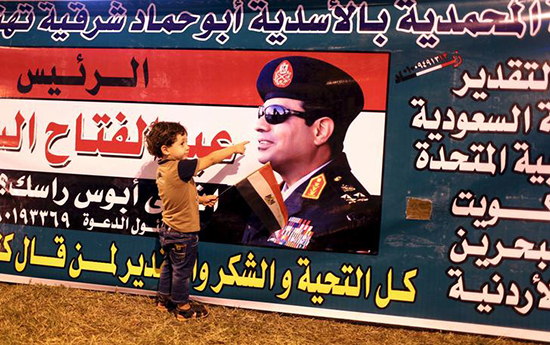Among the things Egyptian President Abdel Fattah el-Sisi and U.S. President Donald Trump are scheduled to discuss during their April 3 meeting in Washington is Egypt’s fight against terrorism. Egypt’s government has broadly interpreted this fight to include jailing dozens of journalists, including photographer Abdelrahman Yaqot, who a few days before el-Sisi arrives in Washington will have checked in at the local police station, as he must every month to meet the terms of his release from prison.
Yaqot, who spent two years in Alexandria’s overcrowded Borg al-Arab Prison on trumped up terrorism charges, told the Committee to Protect Journalists that he fears police officers will send him back to jail when he goes.
“I have been out [of prison] for two weeks, but I still can’t live among people normally,” Yaqot, a former journalist for the news website Karmouz, told the CPJ. “I am trying to remember what normal life is like.”
On March 21, 2015, Yaqot approached a police station in the Mediterranean city of Alexandria to investigate rumors of a bomb threat to the station. Police arrested him on the spot and accused him of plotting to blow up the station on behalf of the Muslim Brotherhood.
After nearly two years behind bars, Yaqot told CPJ that he no longer works as a photojournalist for fear of being rearrested.
“I am technically still in prison,” he said. “I can’t adapt.”
Meanwhile, at least 25 journalists were imprisoned in Egypt on December 1, 2016, when CPJ last conducted its census of journalists jailed around the world. Only Turkey and China imprisoned more journalists. Despite these clear violations of Egyptians’ human rights, the United States has earmarked $1.3 billion in military aid to Egypt this year. In one of his first phone calls with a head of state upon taking office, Trump reaffirmed to el-Sisi his commitment to funding Egypt’s fight against terrorism.
Yet terrorism is the pretext that Egypt’s government has used to jail most of the journalists behind bars. Among them are:
- Mahmoud Abdel Nabi: Abdel Nabi was arrested in Alexandria July 3, 2013, while covering clashes between Morsi supporters and opponents for the website Rassd, hours after el-Sisi, then defense minister, deposed former Egyptian President Mohammed Morsi. Abdel Nabi was charged with weapons possession and rioting, and government prosecutors accused Rassd of spreading lies about the Egyptian government and military on behalf of the Muslim Brotherhood, which it considers a terrorist organization. Now jailed in Alexandria’s Borg al-Arab prison, Abdel Nabi is to CPJ’s knowledge the longest-held journalist in Egypt.
- Abdullah al-Fakharany: Al-Fakharany has been in prison since August 25, 2013, when he was arrested in the home of a Muslim Brotherhood leader’s son. He was sentenced to life in prison, a sentence of 25 years, April 11, 2015 for “spreading chaos” and “forming an operations room to direct the Muslim Brotherhood to defy the government.” Al-Fakharany is currently appealing his sentence. He began a hunger strike in prison to protest his lack of treatment for a leg ailment.
- Hisham Jaafar: Police detained Jaafar on October 21, 2015, at the offices of the Mada Foundation for Media Development, which he headed. Jaafar was also formerly editor-in-chief of the website Islam Online. Jaafar is charged with belonging to the banned Muslim Brotherhood and is still detained. Other employees of the foundation have told CPJ that they received threats from security forces for their work, prompting some of them to flee the country.
President Trump this week told el-Sisi in a call that he looks forward to building off the “positive momentum” in the countries’ bilateral relationship.
But with Abdel Nabi, Al-Fakharany, Jaafar, and dozens of other journalists still behind bars, and with Yaqot and countless others censoring themselves to avoid prison, any “positive momentum” in the U.S.-Egyptian relationship has clearly left many of Egypt’s journalists behind.
